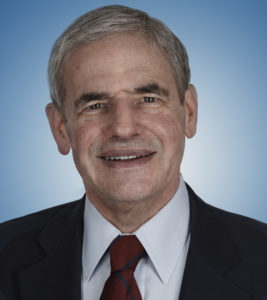Yesterday marked the twentieth anniversary of Ukraine’s independence from the Soviet Union. The country’s challenges are reflected by the fact that the official celebration was overshadowed by protests. As reported by the AP,
Over 5,000 opposition activists rallied Wednesday on the 20th anniversary of Ukraine’s independence from the Soviet Union, protesting the arrest of former Prime Minister Yulia Tymoshenko and demanding early elections.
Ms. Tymoshenko was arrested on August 5th “on charges of contempt of court as part of a trial in which she stands accused of violating official procedures when signing a natural gas import contract with Russian in 2009.” For background on the case and arrest, see the Guardian’s August 5, 2011 story, “Yulia Tymoshenko arrested for mocking Ukraine court.”
On the occasion of Ukraine’s anniversary, we can briefly review where the country stands in terms of its freedom. Freedom will determine the people’s prosperity and well-being.
Civil and Political Freedom
Freedom House, in its April 2011 report, “Sounding the Alarm: Protecting Democracy in Ukraine,” addressed the prosecution of Ms. Tymoshenko and others:
Authorities point to the prosecution of former prime minister Tymoshenko and former interior minister Yuriy Lutsenko as a signal that corruption will not be tolerated and that politicians are not above the law. However, these cases are not focused on charges of personal enrichment, but rather on administrative abuses. The government is correct that the prosecutions send a strong signal, but that signal is actually a warning to other would- be opposition figures not to challenge the authorities.
The report notes the hope Ukraine held when it became independent:
When Ukraine arrived on the world stage as a sovereign nation in 1991, it was one of the most promising states to emerge from the ashes of the Soviet Union. It possessed an educated workforce, strong industry and agriculture, and proximity to Europe. Overnight, it became the largest nation by area within Europe, excluding Russia and Turkey, and had the sixth largest population.
The vision for the country championed by many Ukrainians, and their Western supporters, was of an independent, sovereign Ukraine with strong democratic institutions and a free market, embedded in Europe and a partner of the United States and Russia.
The current circumstances are in unhappy contrast with this vision, as discussed in the report:
Yanukovych has repeatedly articulated the goal of a democratic Ukraine within Europe. But the country today is not on a path that will achieve this vision. Its young democracy and weak institutions face political manipulation, and its fragile economy is subject to massive distortions resulting from widespread, top-down corruption. Ukraine is becoming less democratic, and if no corrective action is taken, it may head down a path toward autocracy and kleptocracy.
Freedom House’s Freedom in the World 2011 report on Ukraine ranks the country as “partly free.” On a scale from 1 to 7, with 1 representing the most free and 7 the least free, Freedom House rates Ukraine at 3 for both civil and political liberty. The report explains the decline from the prior year:
Ukraine’s civil liberties rating declined from 2 to 3 and its status from Free to Partly Free due to deteriorating media freedom, secret service pressure on universities to keep students from participating in protests, government hostility toward opposition gatherings and foreign nongovernmental organizations, and an increase in presidential influence over the judiciary.
Freedom House’s special report issued August 19, 2011, “Promise and Reversal: The Post-Soviet Landscape Twenty Years On,” reflects the disappointing decline of Ukraine:
Ukraine had been the only country in the non-Baltic former Soviet Union to earn a Free designation, and its decline represents a major setback for democracy in the region.
Economic Freedom
The Heritage Foundation/Wall Street Journal’s 2011 Index of Economic Freedom ranks Ukraine as 164th freest out of the 179 countries profiled, and last out of 43 countries in Europe. Ukraine is particularly weak in the categories of government spending; property rights; freedom from corruption; and monetary, investment, financial, and labor freedom.
The report summarizes the country’s problems:
[S]tructural constraints and political instability continue to undermine private-sector development. State intervention and the ongoing threat of expropriation limit dynamic economic activity. Ukraine’s underdeveloped financial sector struggles to provide the necessary credit for private-sector development, while the regulatory environment remains opaque and burdensome. Recent large fiscal deficits have strained public finances, forcing Ukraine to confront the challenge of restoring sustainable levels of public spending.
The International Property Rights Index’s assessment is also negative. Its 2011 Report rates Ukraine 117th of the 129 countries included.
Conclusion
Ukraine remains young in its independence. The same human and natural resources that gave rise to great expectations twenty years ago remain present. The most important resource for the achievement of prosperity and happiness, though, is freedom. If the people of Ukraine can channel their political passion towards establishing the institutions of political, civil, and economic freedom, they can realize the vision that came with independence twenty years ago.
[Links updated: December 1, 2015]




